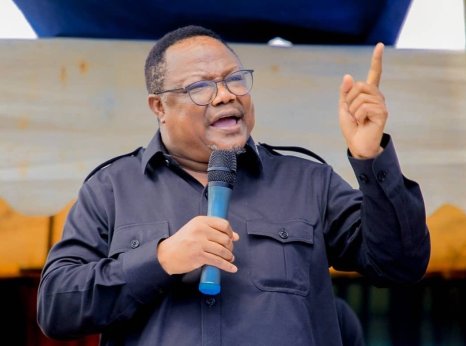Tanzania: Opposition Party Chair Must Be Released

Tanzania will hold its seventh general election in October 2025 with President Samia Suluhu Hassan seeking a second five-year term. The elections come amid a campaign of repression by the incumbent government’s first term targeting members and leaders of political opposition parties, individuals and organizations critical of the government.
On 12 April 2025, the Independent National Elections Commission (INEC), Tanzania’s electoral commission, barred Chadema – the main opposition party- from contesting the October elections, asserting that the party had failed to sign a mandatory code of conduct agreement.
In 2024, four government critics were forcibly disappeared and one was killed. The police prevented opposition members from holding meetings and other political gatherings, subjecting them to mass arrest, arbitrary detention, unlawful force. Journalists and others were denied their right to freedom of expression.
On 11 August 2024, police arrested Chadema party members, including Tundu Lissu, then-vice chairperson and former presidential candidate, John Mnyika, secretary general, Joseph Mbilinyi, a central committee member, more than 500 youth supporters and five journalists. They were arrested at, or on their way to, a meeting in Chadema’s Nyasa office in Mbeya, in south-western Tanzania, ahead of International Youth Day on 12 August 2024. They were accused of violating a ban on a youth conference and planning a violent demonstration. The next day, police arrested party leaders Freeman Mbowe and John Pambalu after they went to Mbeya in response to the arrests. All party leaders were released on bail on 13 August 2024; the others were bailed in the following days. On 13 September 2024, the police announced a ban on all Chadema protests and on 23 September 2024 arrested Freeman Mbowe, Tundu Lissu and six other party officials in Dar es Salaam before planned protests against killings and abductions of government critics. They were released on bail the same day. Three journalists from Mwananchi Communications Ltd and East Africa TV were arrested while covering protests and released the same day.
Dioniz Kipanya, a Chadema party official, disappeared on 26 July 2024 when he left home following a telephone conversation with an unidentified person. Deusdedith Soka and Jacob Godwin Mlay, both Chadema youth activists, and Frank Mbise, a motorcycle taxi driver, were abducted by a group of men suspected to be police officers on 18 August 2024.
The body of Ali Mohamed Kibao, a senior Chadema member, was found on 8 September 2024. Suspected security agents had abducted him from a bus on 6 September 2024 while he was travelling home to Tanga from Dar es Salaam. According to a post-mortem, his body had been soaked in acid and bore signs of a beating.
On 17 October 2024, United Nations human rights experts called on Tanzania to end the ongoing and escalating pattern of human rights violations against opposition political party members, civil society organizations, journalists, Indigenous Peoples and human rights defenders.
International law and standards prohibit the imposition of the mandatory death penalty, as it denies the possibility of taking into account the circumstances in the case. Moreover, international law and standards require that the imposition of the death penalty be restricted to the “most serious crimes” involving intentional killing. The UN Human Rights Committed, the body tasked with the interpretation of the International Covenant on Civil and Political Rights which Tanzania acceded to in 1976, has stated in its General Comment no.36: “Under no circumstances can the death penalty ever be applied as a sanction against conduct the very criminalization of which violates the Covenant, including adultery, homosexuality, apostasy, establishing political opposition groups or offending a head of State. States parties that retain the death penalty for such offences commit a violation of their obligations under article 6, read alone and in conjunction with article 2 (2) of the Covenant, as well as of other provisions of the Covenant.” Amnesty International opposes the death penalty in all cases without exception. As of today, 113 countries have abolished the death penalty for all crimes and 145 are abolitionist in law or practice.